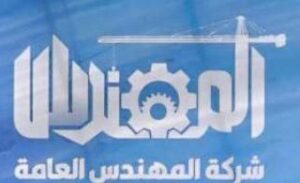Issue Summarized: The creation of the Al-Muhandis Company by the Popular Mobilization Forces (PMF) in Iraq has significant regional implications:
- The establishment provides a substantial means to increase PMF funding, which will bolster its influence over state sectors and further diminish the government’s authority and control.
- This entity poses as a national security threat not only to Iraq but also to neighboring Gulf states and the interests led by the United States in the region.
- The company’s possession of land along the Iraqi-Saudi border, previously used for operating drones in the Gulf region, raises further concerns about its potential activities.
Solution Summarized: The United States and the Gulf Cooperation Council should draft an urgent smart sanctioning agreement against al-Muhandis Company.
The Issue Unfolded:
Iraq is currently facing an increasing epidemic of Iranian-led militias and political coordination frameworks with persistent control over every facet of the state. Iranian-led militias present the state with growing national security concerns. Among the most recent threats the Popular Mobilization Forces (PMF) have presented is the recent development of the PMF-led company, Al-Muhandis company.

This entity is a clear umbrella establishment that claims to serve all sectors of the state ranging from agricultural to construction projects, while simultaneously seeking to fund the PMF and their future initiatives. A company led by mobilization forces that have long presented various human rights violations, political fraud, and embezzlement allegations exhibits a high threat to the security of Iraq, surrounding states, and U.S.-led interests in the region.
What should we do?
To counteract the threats that lie upon all members, the U.S. and the Gulf Cooperation Council should seriously consider a multilateral smart-sanctioning agreement directed at this developing company.
Smart sanctions when implemented with precision, can pinpoint specific entities, individuals, or activities without inflicting widespread harm on the general public. This approach aims to reduce collateral damage by focusing on the company’s activities, assets, and key individuals involved.
Internal Instability:
To truly grasp the magnitude of this threat, consider that the PMF didn’t require a parliamentary endorsement to claim the land for their company’s establishment. In fact, they failed to secure approval for the establishment of the al-Muhandis company from all former prime ministers, but the Coordination Framework, a political bloc closely aligned with Iran and PMF leaders, was able to secure the current administration through manipulative tactics within the system. This maneuvering placed Mohammed Shia’ Al Sudani in power, a member of the
What did the current administration do for the company?
- Al-sudanis’s government granted immediate approval to the creation of the company.
- Provided an initial amount of $67 million for the establishment.
- Allowed the company to seize 1.2 million acres of land along the Iraqi-Saudi border with no paper trail.
A pressing concern arises from the 1.2 million acres of land acquired by the PMF. While the designated purpose of the land is for a proposed agricultural project, the land lies along the Iraqi-Saudi border and in the same area where the militias were reportedly activating drones in the Gulf states on many occasions in 2019. This fact alone should flag potential concerns from the Saudi government and other Gulf states surrounding the region.
Many have been referring to al-Muhandis Company as “Iraq’s Khatam al-Anbia” due to the similarities between the two entities. Khatam al-Anbia, a U.S.-sanctioned entity, serves as the official engineering arm of the IRGC and is a significant revenue generator for them. Clearly, al-Muhandis Company possesses the means and potential to be a funding source for the PMF.
Given the heightened tensions between Iranian-led militias in Iraq and U.S. forces, provided by the ongoing conflict between Israel and Hamas, it is advisable for the U.S. and its regional allies to concentrate on restricting all potential sources that could facilitate the expansion of Iranian militias in that area. That starts with honing down on entities such as al-Muhandis Company and halting its development.


Leave a Reply